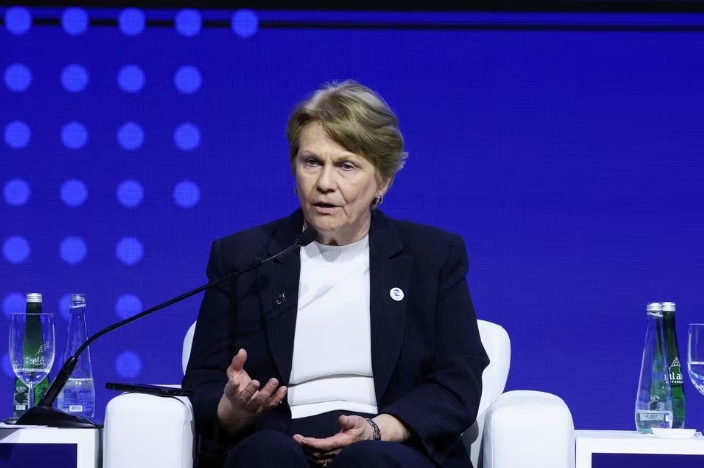
The business potentially could support over 1,000 projects to mitigate global warming, the U.S. oil and gas producer said, creating a new line of revenue from selling direct air capture (DAC) technology and design expertise.
"We will be licensing a lot of this out," Hollub told investors in a webcast to discuss third quarter earnings.
DAC removes carbon dioxide from the atmosphere for burial underground or to make products such as concrete and aviation fuel.
In the franchise-like model, Occidental would charge a licensing fee and turn over management and construction to partners. Its first large-scale DAC plant, a $1.3 billion project, is set to start in mid-2025 and be followed by others.
"We are just going to build a partnership to make this happen at a pace that is much faster than what we could do ourselves," Hollub said.
Occidental expects to spend about $600 million per year through 2026 to build its own projects, which could eventually number 100.
"Instead of expecting to build 100 of these, then we can start to get into the hundreds of them and potentially the thousands that are going to be needed to be built," Hollub said.
The oil producer has struck several agreements with partners endorsing the company's in-house plans to make the technology commercially viable.
BlackRock Inc, the world's biggest money manager, on Tuesday said it will invest $550 million in Occidental's West Texas plant, Stratos. State-owned Abu Dhabi National Oil Company (ADNOC) separately agreed to fund a preliminary engineering study for a 1 million tonne-per-year facility in the United Arab Emirates.
"A high demand for DAC (carbon dioxide removal credits) would likely shift our focus to work licensing DAC technology," said Richard Jackson, Occidental's president of U.S. Onshore Resources and Carbon Management.
Occidental subsidiary 1PointFive recently closed a 10-year agreement to sell such credits to Amazon, and a similar three-year agreement with All Nippon Airways.
Occidental said more than 65% of the first plant's capacity through 2030 has been sold to partners.
"There's absolutely no way that we would have the capability to provide all the capital, we can't do it," Hollub said.